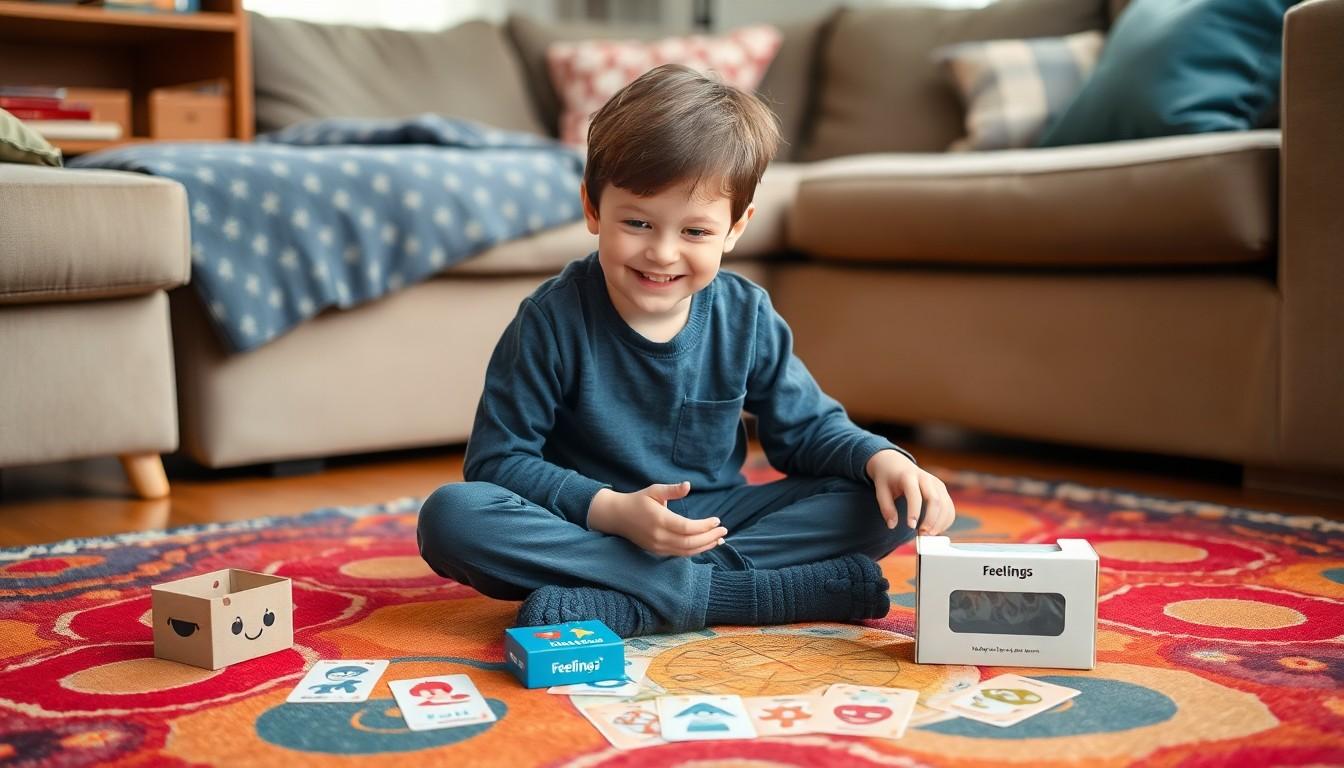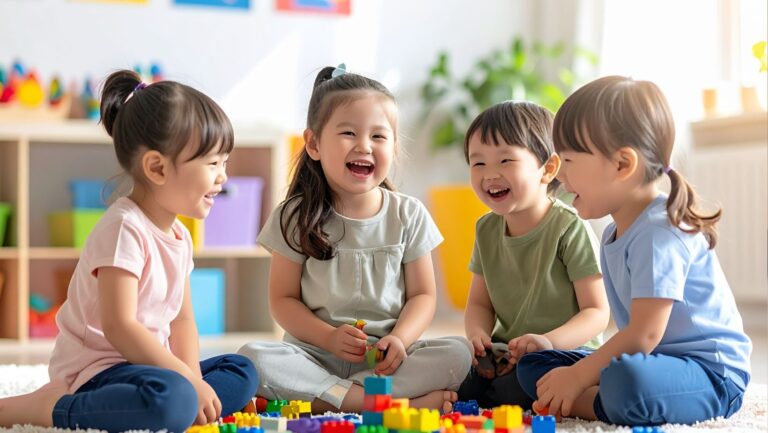Table of Contents
ToggleIn a world where stress seems to be the new normal, kids need a fun escape just as much as adults do. Enter mental health games for kids—a delightful blend of play and emotional well-being. These games don’t just keep little ones entertained; they equip them with essential skills to navigate life’s ups and downs. Who knew that learning to manage feelings could be as enjoyable as hopping on a trampoline?
Imagine a game where kids tackle anxiety like superheroes, using laughter and creativity as their secret weapons. With these engaging activities, kids can build resilience, boost self-esteem, and learn mindfulness—all while having a blast. Forget the notion that mental health is a serious topic; it can be a joyful adventure! So let’s dive into the world of mental health games that turn emotional learning into a playful experience.
Overview of Mental Health Games for Kids
Mental health games for kids serve as effective tools in fostering emotional well-being. These games promote resilience, teach self-esteem, and enhance mindfulness through engaging activities. Incorporating play into the learning process transforms emotional regulation into an enjoyable experience.
Various types of games are available, including board games, digital apps, and outdoor activities. Board games like “Feelings in a Box” encourage children to express their emotions in a structured way. Digital apps, such as “Mindfulness for Kids,” provide interactive ways to practice breathing techniques and relaxation skills. Outdoor activities, such as scavenger hunts, allow kids to connect with nature while managing stress.
Many mental health games emphasize social interaction and teamwork. Collaborative games strengthen communication skills and develop empathy among peers. Sharing experiences during gameplay fosters stronger relationships, contributing positively to children’s social skills.
Specific mental health games can target particular emotional challenges. For instance, games that encourage deep breathing can help children manage anxiety in stressful situations. Other games focus on problem-solving, which enhances coping strategies during challenging times.
Statistics highlight the efficacy of mental health games. A study from the American Journal of Play states that children who engage in such activities show a 30% improvement in emotional regulation skills over six months. Educators and parents observe that children exhibit increased confidence and social skills after participating in structured mental health games.
Incorporating these games into daily routines can significantly support children’s mental health. Prioritizing emotional learning through play not only benefits kids now but also fosters lifelong emotional intelligence.
Benefits of Mental Health Games
Mental health games offer significant advantages for children’s emotional and psychological development. They provide engaging ways for kids to enhance their mental well-being.
Enhancing Emotional Awareness
Games encourage kids to identify and express their feelings. Activities like “Feelings in a Box” allow children to associate emotions with words, facilitating open discussions. As they navigate different scenarios, kids learn how to recognize emotional responses in themselves and others. Improved emotional awareness fosters empathy and understanding, crucial for healthy relationships. Implementing these games regularly promotes sustained emotional growth and enhances children’s ability to articulate their feelings effectively.
Building Coping Skills
Coping skills develop through interactive play. Games that incorporate mindfulness techniques, such as breathing exercises, help children learn to manage stress and anxiety. By practicing these skills in a safe environment, kids become equipped to face real-life challenges. Role-playing scenarios can teach various coping strategies like reframing negative thoughts into positive affirmations. Continued engagement in these activities strengthens children’s resilience, preparing them for future emotional hurdles.
Types of Mental Health Games
Mental health games for kids come in various forms, each designed to enhance emotional well-being in a unique way. These games target different aspects of mental health, making them versatile tools for parents and educators.
Digital Games
Digital games provide interactive environments that engage kids while teaching them valuable coping strategies. Applications like “Mindfulness for Kids” guide children in relaxation techniques through fun, animated activities. They can also include games that encourage emotional expression, helping kids articulate their feelings more effectively. Engaging in these digital platforms allows children to practice emotional regulation in a safe space. Reports indicate that children using these apps show higher levels of emotional clarity, leading to improved communication and mindfulness.
Board Games and Card Games
Board games and card games create opportunities for face-to-face interaction while addressing mental health themes. Games such as “Feelings in a Box” prompt discussions about emotions and relationships. These games encourage kids to articulate what they feel, promoting empathy and understanding among peers. Playing together enhances social skills and builds teamwork as children collaborate to navigate challenges. Structured play with board games often results in significant gains in emotional awareness and the development of coping mechanisms that kids can rely on in everyday situations.
Popular Mental Health Games for Kids
Mental health games engage children through playful activities, promoting emotional skills and resilience. Here are two popular games that aid in mental health development.
Game 1: Feelings in a Box
Feelings in a Box serves as an interactive tool for emotional expression. Players draw cards from the box, which feature various emotions like happiness, sadness, or anger. The game encourages discussions about feelings, helping children recognize and articulate their emotions. Designed for small groups, it fosters social interaction and empathy among kids. Educators often implement this game in classrooms, enhancing emotional awareness. Research indicates that games like this can improve emotional regulation by 30% over six months.
Game 2: Mindfulness for Kids
Mindfulness for Kids is an app that introduces relaxation techniques through fun, engaging activities. It features guided meditation and playful mindfulness exercises tailored for children. Activities promote deep breathing, visualization, and focused attention, making mindfulness accessible and enjoyable. Parents and educators frequently use the app to help kids manage anxiety and develop coping strategies. With interactive elements, the app encourages regular practice, fostering lasting mindfulness habits. Studies show that consistent use can lead to improved emotional resilience and reduced stress levels among children.
Tips for Parents and Guardians
Engaging children in mental health games fosters emotional growth and resilience. Parents and guardians can take an active role in this process.
Encouraging Participation
Incorporate various games into family activities to enhance interest. Allow kids to choose the games they want to play, promoting ownership and enthusiasm. Make game time a regular part of the family’s schedule, ensuring consistency. Use positive reinforcement to celebrate participation and progress. Create a safe space for discussions about emotions, helping children feel comfortable expressing themselves. Encourage teamwork by involving siblings or friends in these activities, boosting social skills and cooperation.
Balancing Screen Time
Monitor screen time to ensure a healthy balance with other activities. Set daily limits for digital games, keeping total recreational time in mind. Encourage outdoor activities to complement screen use, promoting physical health and social interaction. Choose high-quality apps that prioritize mental well-being, focusing on those like “Mindfulness for Kids.” Set specific times for game use to help children develop a routine. Encourage off-screen interactions by discussing the game’s lessons and emotions, reinforcing learning in everyday situations.
Conclusion
Mental health games for kids offer a unique blend of fun and education that fosters emotional growth. By engaging in these activities, children learn to navigate their feelings while developing essential coping skills. The positive impact on their emotional well-being is evident through improved resilience and social interactions.
Incorporating games like “Feelings in a Box” and “Mindfulness for Kids” into daily routines not only enhances emotional intelligence but also strengthens family bonds. Parents and guardians play a crucial role in facilitating this process, ensuring that kids find joy in learning about their emotions. Embracing these games can lead to a healthier mindset and a brighter future for children.





